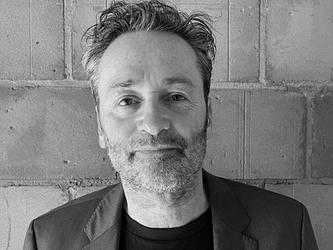Charlene Li in seven
1: The past 18 months have been disruptive for businesses – how can organisations shift their mindset to focus on the next phase of growth?
When disruptions such as Covid-19 happen, needs don’t go away – they shift. Growth comes from meeting these changing needs and now is a great time to look for them, because disruptions create opportunities for growth. But you need to move quickly.
2: How can businesses prepare for the future at times of uncertainty?
By getting better at making decisions without all of the information and being comfortable with the outcome, regardless of whether it’s in your favour or not. Confidence comes from knowing that, either way, you’ll be OK. In the end, that’s the best way to prepare – by building up your confidence that, even in times of great uncertainty, you will be OK.
3: What does good leadership look like in 2021?
Leadership is a relationship between people who want to create change and those inspired to follow them. In 2021, leaders take to heart the importance of leaning into creating and deepening relationships, so they reduce the power distance between them and the front lines of the organisation. They also foster a sense of agency among employees so that they think and act like owners – and they communicate a clear vision of the future they want to manifest.
4: Are senior management teams paying enough attention to research?
I’d like to phrase that another way: are they paying enough attention to the future? Because that’s what research does – it gives you a glimpse of what could be, however imperfect it is. Good research looks to the future and what is possible, rather than looking back in time to what’s already happened. Senior management need to look far into the future so they can set the company’s high-level strategy for how they will get there. All too often, that future is driven by gut feelings and hunches, rather than research. So now, not nearly enough attention is being paid to research because senior management isn’t actively thinking or working on the future as much as it should be.
5: What will be the greatest management challenge in post-pandemic workplaces?
Re-establishing agreements, norms, routines, and rituals that take into account a new relationship between employers and employees. We have been to the brink and experienced a level of intimacy that we never expected. We are often virtually in each other’s houses and bedrooms if we are remote workers. There’s no going back to the normal, and yet crafting a new normal is going to take time, patience, and a lot of discussion that management is not used to having.
6: How can research business leaders attract more new recruits to the industry?
By grounding the research we do to real-world problems. I sometimes see research about a new technology or innovation, and while it’s interesting, it’s a data dump with very little insight into what it means. What does the research mean for customers, employers, brands and the environment? Make the questions we answer with research robust, holistic and relevant to the world and we will have people banging down the doors to work in the industry.
7: Do businesses need to rethink their relationships with consumers?
Yes, constantly. Consumers keep changing at astounding speeds — for example, TikTok didn’t exist when the seniors that graduated this spring started high school. By far the biggest mistake that companies make is assuming that their customers today will be their customers tomorrow. You can’t assume that’s the case. Instead, be constantly examining the fringes of your customers to look for indications of emerging future customers, because that’s where your future potential growth could be. But you won’t know unless you look.

We hope you enjoyed this article.
Research Live is published by MRS.
The Market Research Society (MRS) exists to promote and protect the research sector, showcasing how research delivers impact for businesses and government.
Members of MRS enjoy many benefits including tailoured policy guidance, discounts on training and conferences, and access to member-only content.
For example, there's an archive of winning case studies from over a decade of MRS Awards.
Find out more about the benefits of joining MRS here.












0 Comments